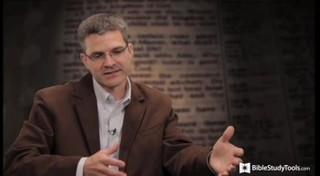
- Recent Translations
- All Translations
Jiālātaìshū 3:15
Share
Settings
Images for Jiālātaìshū 3:15

Jiālātaìshū 3:15 Meaning and Commentary
Brethren
Whereas in ( Galatians 3:1 ) , he calls them "foolish Galatians", which might seem too harsh and severe, therefore, to mitigate and soften their resentments, he styles them brethren; hoping still well of them, and that they were not so far gone, but that they might be recovered; and imputing the blame and fault rather to their leaders and teachers, than to them:
I speak after the manner of men;
agreeably to a Talmudic form of speech in use among the Jews, (Mda ynb Nyvlk hrwt hrbd) , "the law speaks according to the language of the children of men", or "after the manner of men" F2, when they argue from any Scripture, in which a word is repeated, and the latter word seems to point out something peculiar: but the apostle's meaning is, that the thing he was about to speak of was taken from among men, in common use with them, and what was obvious to the common sense and understanding of men, and might easily be applied and argued from, as it is by him:
though it be but a man's covenant, or testament, yet if it be
confirmed, no man disannulleth or addeth thereto;
if a covenant made between men, or a man's will and testament, be confirmed, signed, sealed, and witnessed, in a proper manner, no other man can make them void, or take anything from them, or add anything to them, only the parties concerned by their own will and consent; and if this be the case among men, much less can the covenant of God, confirmed by two immutable things, his word and oath, or his will and testament, or any branch of it, be ever disannulled, or be capable of receiving any addition thereunto. The apostle seems to have a particular respect to that branch of the covenant and will of God, which regards the justification of men in his sight by the righteousness of Christ, to which the false teachers were for adding the works of the law.
F2 T. Bab Ceritot, fol. 11. 1. Bava Metzia, fol. 94. 2. Sanhedrin, fol. 90. 2. Maccot, fol. 12. 1. Vid Halicot Olam, tract 4. c. 3. p. 199.
